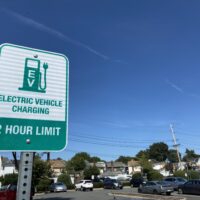High gasoline prices are hurting Americans of all stripes, but rural residents are having a particularly tough time.
In southeastern Kentucky, “The surge in prices has rippled throughout the region, where people already have to drive far to commute to work or school, visit family and run their businesses,” Corinne Boyer reports from Owsley County, one of the nation’s poorest, for Eastern Kentucky University’s WEKU-FM.
Fuel distributor Bob Riley, who serves Owsley County’s gas stations, told Boyer the higher costs mean stations hit their credit limit sooner and can’t buy as much gas from him. Riley hits his own credit limit sooner, restricting the amount of supply he can have on hand.
Increased fuel prices drive up prices on goods, too, Riley told Boyer: “It also has a big effect on that hot dog you just brought at Kroger‘s and the produce, all your goods because everything’s—at some point in the distribution chain—carried by a truck.”
Commuting for college or work has become more prevalent “as population and investment declines in rural parts of the country,” Boyer reports. Some people have had to cut back on work hours because they can’t afford to drive far away to work at a low-wage job.
Megan Warner, who works at the Owsley County Library, said many city dwellers may not understand what it’s like to live in a rural area where jobs don’t pay well and housing is limited. “People tell you a lot, too, that you just need to get out there and work hard,” Warner told Boyer. “It’s hard to work hard when they basically just push you down with all these high prices that probably aren’t going to get any lower anytime soon.”
Dee Davis, president and founder of the Whitesburg-based Center for Rural Strategies, suggested ways policymakers could help rural communities if gas prices remain high: “Minimum wage can go up. It has been too low, too long. And we can make earned income tax credits permanent.”
Two weeks ago, President Biden announced the release of a million barrels of oil per day from the nation’s Strategic Petroleum Reserve. Last week, he announced that E15 fuel, which contains more ethanol, will be available for sale this summer.
The Rural Blog is a publication of the Institute for Rural Journalism and Community Issues based at the University of Kentucky.






